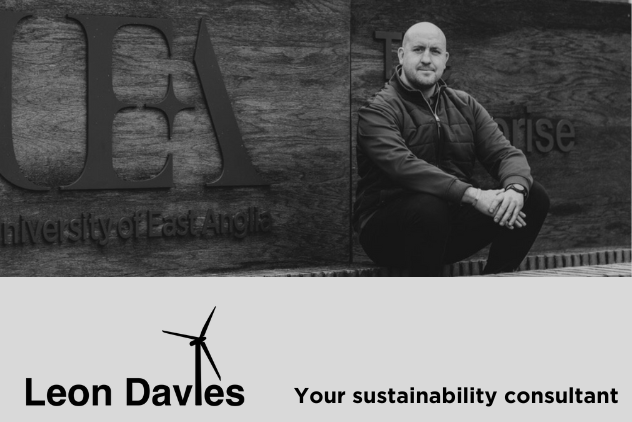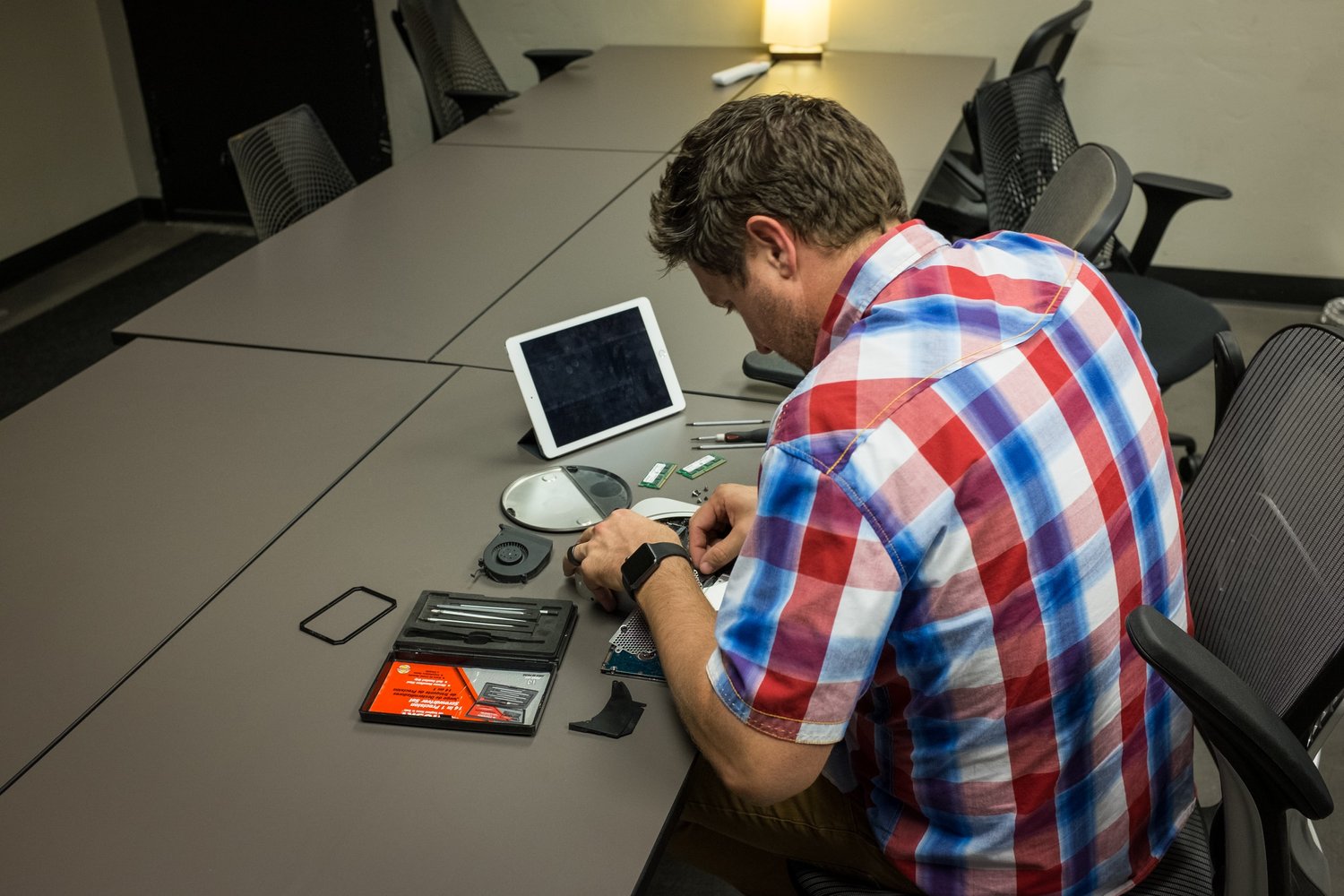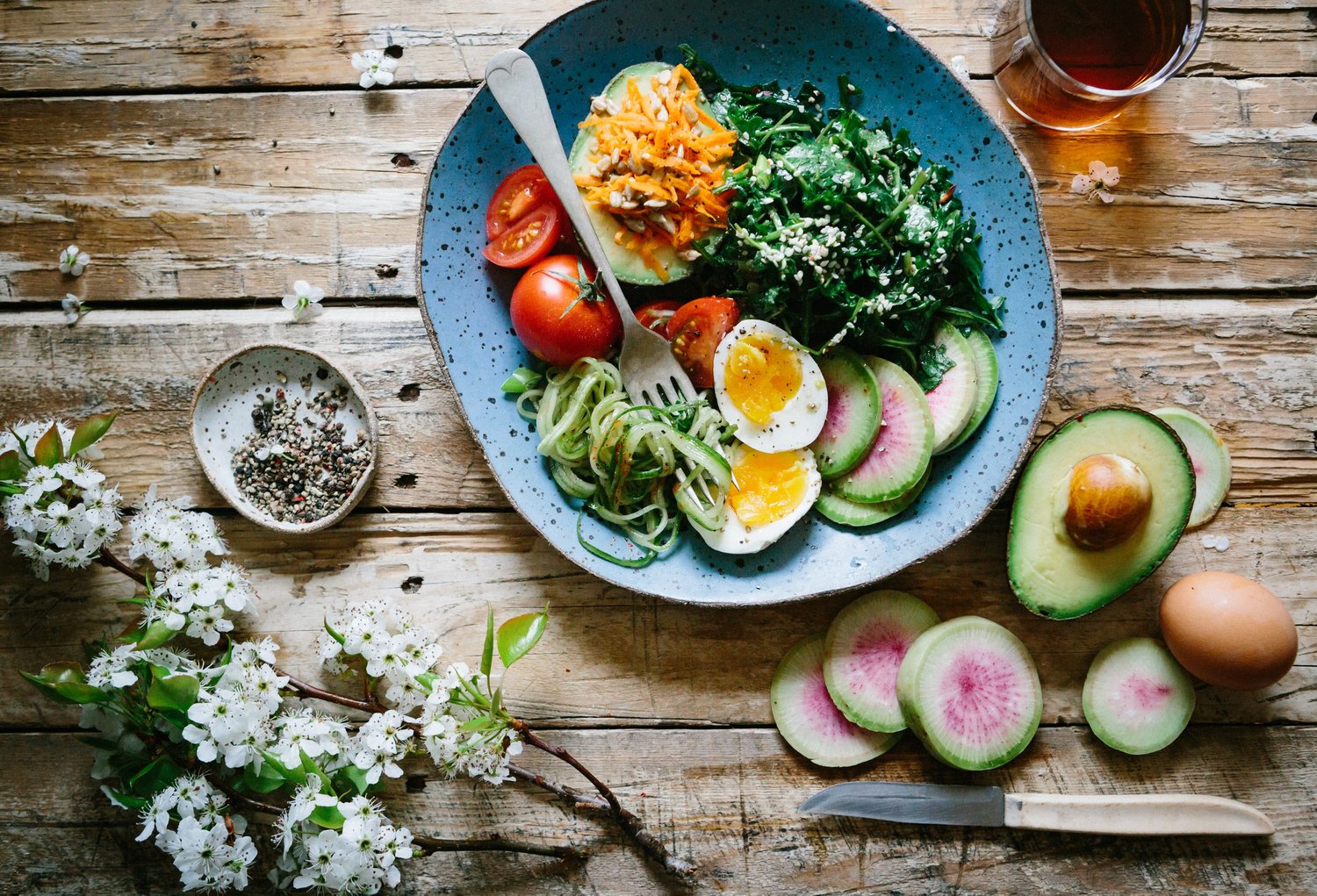
Don’t just think about going greener… start doing it!
Author Leon Davies | leondavies.co.uk
I’m a passionate advocate for sustainability, and I want to use my knowledge and drive to help as many businesses and individuals as possible.
Real change is all about action, so it’s an exciting time as global leaders prepare to come together at the UN’s Climate Change Conference (COP) in late October.
Their mission is to find ways to accelerate the action we’re taking as the inhabitants of this earth so that we can make a planet-saving impact fast.
For me, that’s terrific because while I love talking to people about climate change, going green and saving our planet, unless we do something, nothing will happen.
I feel lucky because my job is helping businesses become more sustainable and encouraging everyone to live more sustainably – and it’s also my passion.
Because it’s my passion, when people come up to me and say, “I’d really like to go greener, but I haven’t done it yet because I don’t know where to start, and it seems quite tricky,” it tends to rankle me a little bit.
Surely if we all stopped procrastinating about going greener and just got on with doing it, we’d quickly find out that living a sustainable lifestyle and running a sustainable business isn’t difficult to accomplish at all.
Whatever you think you can do, do it. It won’t take long before it becomes a way of life you won’t even have to think twice about, and if we all made just one small green change at a time, it would cumulatively make a huge difference.

If you’ve got something that doesn’t work, don’t throw it away – try fixing it!
(Of course, I’m talking here about appliances and other fixable or up cyclable objects; if you’ve got a person in your life that doesn’t work, or a dog that won’t bring the ball back when you want it to, you need to be taking advice from a completely different type of consultant.)
Seriously, though, a lot of us are horrendous for throwing stuff away instead of trying to repair it, and that level of wastefulness and laziness has a massive impact on our carbon footprint. So, instead of tossing your glitchy electronics or household appliances into the skip next time they stop working, fix your relationship with electronics and electricals by trying to repair them instead. In fact, if we make a habit of looking after our appliances a lot better than we do (like regularly cleaning and maintaining them), that’s often all it takes to prolong their life cycle.
Take a look at this fantastic social enterprise scheme called The Restart Project for more information and ideas and to find out about their nationwide network of skill-sharing workshops.
Alternatively, if you’ve got any working electrical items that you want to get rid of, why not donate them to the Norfolk homelessness charity Emmaus? A lot of other charity shops won’t accept electrical items but Emmaus do, and they test them before they resell them, so they’re a brilliant place to purchase second-hand electrical goods from too. Give them a call!

Stop using single-use plastic
It’s well known that plastic waste is environmentally catastrophic. Of the 8.3 billion tonnes of plastic in the world, only a tiny percentage of it can ever be recycled. Items like plastic bags, plastic packaging and plastic straws can take up to two hundred years to decompose. Please stop for a moment and think about how much harm that is doing to our animals, our oceans, our ecosystem and our environment during that incredibly long length of time. Surely that’s not the legacy we want to leave our kids and future generations?
Back in January 2018, the UK government launched a 25 Year Environment Plan committed to improving air and water quality, creating richer habitats for wildlife, and curbing the terrifying amount of plastic that’s clogging up the world’s oceans. It also includes a lot of other initiatives.
Helping the planet by curbing your use of single-use plastic is a sustainable step you can take right away.
· Stop buying bottled water.
· Take your own bag with you next time you go to the supermarket.
· The next time you have a party or a picnic, choose naturally sustainable disposable tableware and packaging instead of single-use plastic knives, forks and plates.
· Invest in a reusable bamboo or metal drinking straw. That’s not only a healthier eco-friendly solution, it’s also more cost effective.

Eat less meat
Yes, I know that will sound like a step too far for most of the carnivores reading this, but if each of us replaced one or two meat meals a week with something veggie or vegan, we’d make a significant impact on the planet’s greenhouse gas emissions (GHG). The odds are, we’d feel and look quite a bit healthier too.
GHG emissions occur at every stage of the meat and dairy process, from farming (i.e., methane produced by livestock and nitrous oxide produced by fertilisers), processing, packaging, the transport required to ship the product onto the supermarket shelf, to finally serving it on our plate.
The meat industry consumes a massive amount of water too. It takes 10,910 litres of water to produce 0.5 kg of meat. On the flipside, it only takes 114 litres of water to produce 0.5kg of wheat.
Still not convinced?
In that case, you could at least start eating greener by buying at least half your food locally. The COVID lockdowns proved that the increasingly popular idea of the 20-minute neighbourhood, where everything you need in work or life should preferably be within twenty minutes’ walk of where you live, is more achievable than we might previously have thought. Not only is buying your food locally a great way to cut down transport costs, support local retailers, and help your community to flourish, it’s also healthier and more sensible. Meat spoils, and fruit and veg lose their nutritional value over a relatively short time, so how far your food has travelled can have a noticeable impact on how long it will last when you get it home.

Save energy
· Switch to energy and cost-saving LED bulbs.
· Turn off lights when you’re not in the room.
· Turn down your thermostat: almost half the money spent on energy bills is absorbed by heating and hot water costs. Turning your heating down by just one degree could save up to £80 a year.
· Switch off computers, TV’s and other appliances when you’re not using them, or only keep them on standby if it’s necessary for their operation.
· Don’t charge phones or tablets overnight; charge them during the day, so you can see as soon as the battery’s full and then disconnect them.
· When you’re making a hot drink, only boil the amount of water you need: according to British Gas, if all of us only boiled the water we needed for a cup of tea, we’d save enough electricity in one year to power the UK’s street lights for a month.
· Wash your clothes at a lower temperature: washing at 30 degrees instead of 40 degrees will help reduce your energy usage. Also, if you do a lot of washing, cutting out one wash cycle per week could take £5 off your annual energy bill.

Be mindful about recycling
· Recycle your paper and cardboard (newspapers, magazines, leaflets, boxes, etc.) but remove any tape from the boxes before putting them in the recycling bin.
· Recycle your metal cans but clean them out beforehand because contaminated containers can’t be recycled.
· Recycle textiles and unwanted clothing, maybe by donating them to a charity shop or putting them in the charity bank at your local supermarket.
· Recycle your garden waste: if you do a lot of gardening, ask your local council to supply you with a recycling bin especially for that purpose.
· Items like batteries and paint are considered hazardous waste products and can be trickier to recycle depending upon where you live. Check if your local recycling centre will take them. If they don’t, ask them if they ever have a hazardous waste amnesty when they’ll temporarily accept paint, batteries and other hazardous waste items. Most councils do.
On the other hand, if there’s only a small amount of paint in the can, add something absorbent to dry it out (like cat litter or sawdust) and then, once it’s dried, you can put the paint container in your general waste bin.

Green your commute
When you want to go somewhere, only use your car if you’ve got no other option – walking, riding a bike, or taking public transport are the best ways to get places while minimising your CO2 emissions.
Or, if you have to use a car, find out if there’s somebody you can car share with or would like to car share with you. If you’ve got to drive every day to get to work, car sharing is an excellent way to get to know your colleagues better.
Alternatively, if you live in or around Norwich, you could book a ride with a certain zero-carbon taxi company I’m associated with!
If one or two of these tips sound familiar, it might be because you’ve already read my article, 10 Ways to Save the Planet by Living More Sustainably. If you haven’t, check it out. It contains plenty more suggestions to encourage you to start thinking and living more sustainably.

A final thought
The United Nations Environment Programme (UNEP) says, ‘A healthy planet depends on all of us’, and my team and I will always be on hand to help you achieve that. Whether you want to implement more sustainable solutions in your business or your home, or if you know somebody who wants to go greener and could benefit from our expertise, please get in touch.

At the end of the day, it all starts with mindfulness; being aware of why we’re doing something, consuming something, buying something, needing something, producing something… and those are all elements that, on a very microscopic level, begin with each of us as individuals and then gradually expand out.
It’s in your power to be the change you want to see in your world. Don’t do it alone. Let’s all do it together. NextStart going greener by discovering what’s outside your own front door!
You can view this original article here at leondavies.co.uk